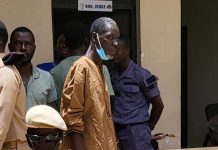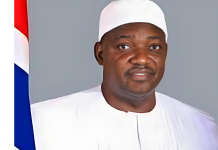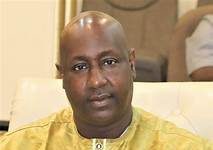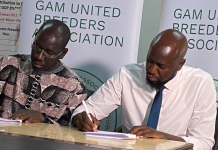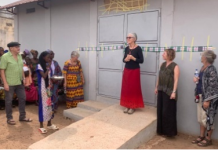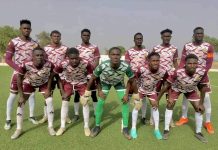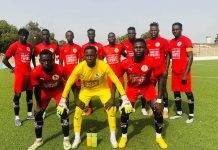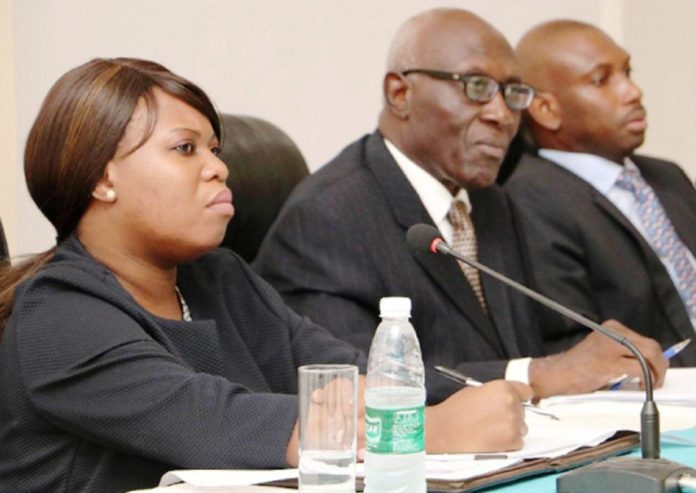By Mamadou Dem
Fadi Mazegi, the Managing Director of EURO Africa Group, yesterday told the ‘Janneh’ Commission that they were never in charge of the management of NAWEC, despite the fact that the contract agreement between GTG and the nation’s Utility Company indicated that GTG was responsible for administrative and commercial matters of the said Company; that the theoretical aspect of the contract was not put into practice.
Mazegi was summoned in connection to the energy Company’s contracts which were executed by his Companies, i.e. Global Management System (GMS), Global Trading Group (GTG) and Global Electrical Group (GEG), amongst others.
Prior to his testimony, he was asked by Counsel Bensouda to look at a letter from NAWEC dated 26th September 2002, as well as a letter written by Abdoulie Jobe, a former Managing Directo of NAWEC, to Muhamed Bazzi, in connection to Heavy Fuel Oil (HFO) contract between Global Trading and NAWEC.
After going through the said letters, the witness confirmed that they were from Global Trading Group; that what Shell Company was charging for HFO was more than what GTG was charging; that the 17% charge was not part of the agreement.
Counsel Bensouda further told him that NAWEC tanks cost D2,000,000 and the purpose of the GTG documents to NAWEC was not to show them the analysis that they were supposed to compensate NAWEC for the delivery tanks for a period of 5 years; that the compensation was for free storage and transportation of fuel at the Mandinary depot for a period of 7 years, because the tanks at Half Die were not installed.
Mazegi informed the Commission that they could not build the tanks because of poor soil quality; that this was why they opted to give NAWEC free storage and transportation for the next project, but that failure to build the tanks was a problem for NAWEC.
At this juncture, Counsel Bensouda put it to him that the issue of the tanks was not captured in the agreement, despite the fact that GTG was in control of the nation’s Utility Company. In response, Mazegi said: “We were never managing NAWEC. This is a very wrong impression.”
It was further put to him by Counsel Bensouda that they were compensating NAWEC for what was past, and then asked him why the margin remained 17%. He responded that what they gave NAWEC, was more than what they should have given.
The business tycoon further testified that the value of what they were offering did not reflect on their records; that NAWEC was in arrears of payment and they had huge deficits; that NAWEC obtained other options to get fuel, because they were under threat from the former executive.
At this juncture, Counsel Bensouda reminded him that a contract between Global Management System (GMS) and NAWEC, took effect in 2007 and at that time, they had the responsibility for the management of the nation’s Utility Company; that it was difficult to appreciate that NAWEC could not pay their arrears.
In response, Mazegi told the Commission that they never managed NAWEC; that they reduced the tariff when the price of fuel went up; that the taskforce was not involved in the signing of the contract in 2007, and the role of the taskforce was to assist NAWEC with technical work.
Still testifying on the contract, Mazegi revealed to Commissioners that he did not negotiate for the renewal of the contract but it was extended with the same terms and conditions of the previous contract.
According to him, as at 2010, NAWEC started defaulting on payments of both HFO and IPP; that this was because there was a reduction on their tariff; that notwithstanding, they continued to supply them.
Mazegi adduced that the GEG was operating the IPP, and that they bought used generators from China and spare parts from Europe; that the generators were reconditioned in China, but said he could not remember how much they bought the generators for.
Counsel Bensouda challenged him that they did not have financial records to show how much they bought the generators.
“I would expect that you have financial records of this investment,” Bensouda took him to task.
On the capacity charge, Mazegi testified that it was a reflection cost made by the investor; that they signed a power purchase agreement with NAWEC and were the only Company that accepted to sign for the IPP contract without any guaranty from the former government; that on asset value, the cost of their investment was over $40,000,000.
At this juncture, Counsel Bensouda put it to him that NAWEC staff were under duress on the agreement. He replied that they were fair to NAWEC and did not impose anything on them.
Counsel Bensouda further asked him to provide the Commission with calculations showing how he was able to get the capacity charge. “We would like you to provide the basis of your calculation on the capacity charge,” she insisted. In response, the witness said he did not have the evidence.
On whether GEG owns offices in the Gambia, he responded in the affirmative that they have an office in Brikama. He was further asked whether GEG kept records, and he said he would check. Further asked why they sheltered behind the office of the former president, Mazegi responded that they did not shelter behind the office of the former president, and did not know anything about heads rolling.
He confirmed that they brought their draft for NAWEC to sign but it was again put to him that the pricing was usually $1,000,000 per megawatt. He stated that it was calculated because they were in a country where there was no political stability.
Mazegi was asked why his Company did not insist on the guaranty from the former government, he responded that they did not insist; that they did not discuss the guaranty because it was not put on the table.
Responding to Commissioner Abiosseh George, Mazegi told the Commission that they could not leave the country despite the political instability, because they had already invested in the country.
At this juncture, Commission Chairman Sourahata Janneh, reminded Mazegi that as an MBA holder, before he got into these type of dealings, he needed to prepare a scheme and he responded that he could give the basis but not the amount involved in the investment.
Commission Chairman Janneh again ask the witness whether he made any profit during his stay in the country, but the witness answered that he never had any Company and that the dividend he had from other Companies were profitable.
Counsel Bensouda put it to him that the capacity charge remained constant. In response, Mazegi said the it was because of NAWEC’s breach for not paying, that the capacity charge was not constant.
He testified that because NAWEC had financial constraints, GTG deferred the capacity charge and it was the office of the former president that instructed NAWEC to stop it.
On whether he had any relationship with the office of the former president, Mazegi stated that he never had any relationship with the office of the former president; that the question should be put to Muhamed Bazzi.
It was again put to him that the office of the former president benefited from his Company, and that there were directives from that office that NAWEC should sign contracts with his Company. Mazegi responded that they were a reliable and a professional Company, and did their job well on the ground. He finally testified that the energy charge was not high and there was a fixed charge.
Hearing continues today.



